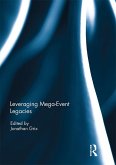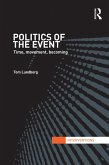Event History Modeling, first published in 2004, provides an accessible guide to event history analysis for researchers and advanced students in the social sciences. The substantive focus of many social science research problems leads directly to the consideration of duration models, and many problems would be better analyzed by using these longitudinal methods to take into account not only whether the event happened, but when. The foundational principles of event history analysis are discussed and ample examples are estimated and interpreted using standard statistical packages, such as STATA and S-Plus. Critical innovations in diagnostics are discussed, including testing the proportional hazards assumption, identifying outliers, and assessing model fit. The treatment of complicated events includes coverage of unobserved heterogeneity, repeated events, and competing risks models. The authors point out common problems in the analysis of time-to-event data in the social sciences and make recommendations regarding the implementation of duration modeling methods.
Dieser Download kann aus rechtlichen Gründen nur mit Rechnungsadresse in A, B, BG, CY, CZ, D, DK, EW, E, FIN, F, GR, HR, H, IRL, I, LT, L, LR, M, NL, PL, P, R, S, SLO, SK ausgeliefert werden.









